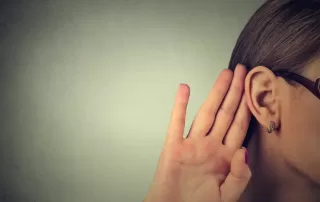Overview
Tinnitus is the perception of noise or “ringing in the ears” without an actual external sound source being present. It is a common condition that affects many Australians, and can significantly impact quality of life. It may happen only occasionally for some people, or it can be continuous in some cases. It can also vary in pitch and intensity.
Symptoms:
- Ringing, buzzing, hissing, or clicking sounds in the ears
- The noise can be constant or intermittent
- The volume of the noise may vary
- It may affect one or both ears
Causes:
- Hearing Loss: Age-related hearing loss is a common cause
- Exposure to Loud Noises: Prolonged exposure to loud sounds can damage the inner ear.
- Ear Infections: Infections can cause inflammation and lead to tinnitus.
- Earwax Blockage: Excessive earwax can obstruct the ear canal.
- Medications: Some medications can cause or worsen tinnitus.
- Underlying Health Conditions: Conditions such as high blood pressure, diabetes, and thyroid disorders can sometimes contribute.
Diagnosis:
Diagnosis involves a thorough medical history and physical examination. Audiological tests, imaging studies, and blood tests may be conducted to identify the underlying cause.
Treatment:
- Addressing Underlying Causes: Treating any underlying health conditions.
- Sound Therapy: Using external noise to mask the tinnitus sound can provide relief.
- Hearing Aids: These can help manage tinnitus by amplifying external sounds.
- Cognitive Behavioral Therapy (CBT): CBT can help patients manage the emotional and psychological impact of tinnitus.
- Medications: Some medications can help reduce the severity of symptoms
If you have any concerns about tinnitus, you should see a GP, or an ENT specialist.
Further patient information, as well as access to tinnitus counsellors is available via the Australian Tinnitus Association.


